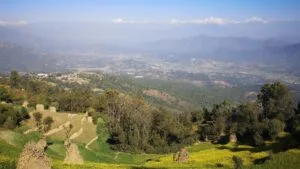Eklabya Sharma
Abstract/Description
Hindu Kush Himalaya (HKH) region, including its mountains and adjoining downstream, is under threat. The region is facing sustainable development challenges and stands at the front line of the climate crisis. The HKH is well known for its cultural, biological, aesthetic, and geo-hydrological values. Afghanistan, Bangladesh, Bhutan, China, India, Myanmar, Nepal, and Pakistan share the HKH. Hindu Kush Himalaya Monitoring and Assessment Programme (HIMAP) led by the International Centre for Integrated Mountain Development made strides in promoting regional and transboundary cooperation between HKH countries, particularly in heightening the role of academia through research synthesis. As part of HIMAP first comprehensive multi-institutional, interdisciplinary and regional assessment engaging 300+ researchers resulted into ‘The Hindu Kush Himalaya Assessment’ 2019 report. This report has drawn global attention on mountain issues, challenges and build the basis for a ‘Regional Call to Action’ endorsed and implemented by the eight HKH countries. This paper provides methodological reflections, from the perspective of one of the core leading team members, on the process of engaging researchers and academic institutions in the HIMAP endeavor. It highlights the key learnings in the introduction of transdisciplinary approaches for transformative change through research synthesis and dialogues among researchers and between academia and stakeholders. These learnings are around knowledge generation themes, issues on region data gaps and sharing, practical strategies to engage policymakers for evidence-based decisions, human and institutional capacities for transformative change, innovations in regional and global mountain levels, regional science-policy dialogues, and support transboundary and regional cooperation. The idea for transformative change imbibed in the assessment process needs further strengthening. The paper puts forth a call for the 2nd assessment of the HKH region for a step up in strengthening transdisciplinary approaches and collaborations for mountainous HKH region. The Himalayan University Consortium, an academic platform for cooperation among more than 100 universities and institutions from the region and outside is poised for carrying out the second HKH Assessment, with a greater focus on empowering agenda-setting of the South in the global research agenda.



